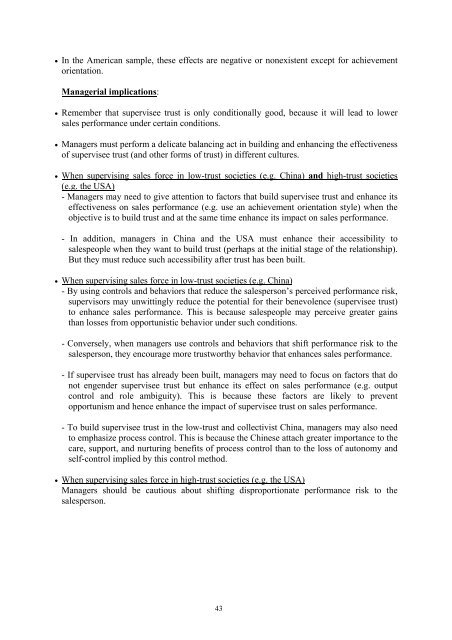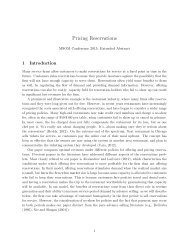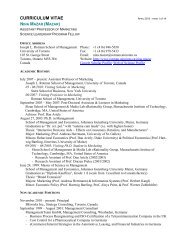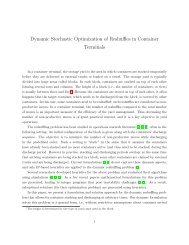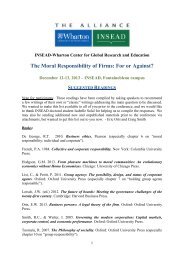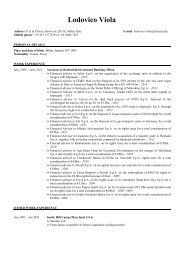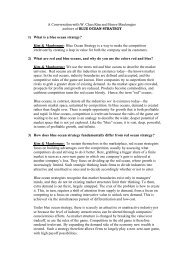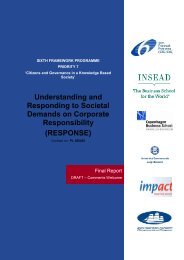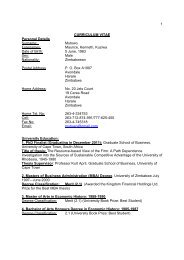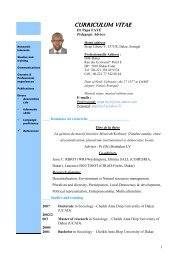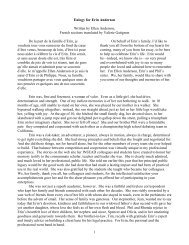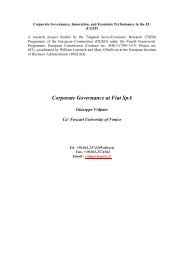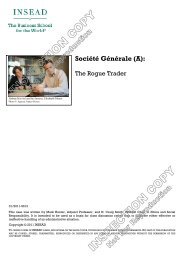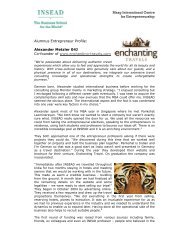Leading the Effective Sales Force: The Asian Sales Force ... - Insead
Leading the Effective Sales Force: The Asian Sales Force ... - Insead
Leading the Effective Sales Force: The Asian Sales Force ... - Insead
Create successful ePaper yourself
Turn your PDF publications into a flip-book with our unique Google optimized e-Paper software.
• In <strong>the</strong> American sample, <strong>the</strong>se effects are negative or nonexistent except for achievement<br />
orientation.<br />
Managerial implications:<br />
• Remember that supervisee trust is only conditionally good, because it will lead to lower<br />
sales performance under certain conditions.<br />
• Managers must perform a delicate balancing act in building and enhancing <strong>the</strong> effectiveness<br />
of supervisee trust (and o<strong>the</strong>r forms of trust) in different cultures.<br />
• When supervising sales force in low-trust societies (e.g. China) and high-trust societies<br />
(e.g. <strong>the</strong> USA)<br />
- Managers may need to give attention to factors that build supervisee trust and enhance its<br />
effectiveness on sales performance (e.g. use an achievement orientation style) when <strong>the</strong><br />
objective is to build trust and at <strong>the</strong> same time enhance its impact on sales performance.<br />
- In addition, managers in China and <strong>the</strong> USA must enhance <strong>the</strong>ir accessibility to<br />
salespeople when <strong>the</strong>y want to build trust (perhaps at <strong>the</strong> initial stage of <strong>the</strong> relationship).<br />
But <strong>the</strong>y must reduce such accessibility after trust has been built.<br />
• When supervising sales force in low-trust societies (e.g. China)<br />
- By using controls and behaviors that reduce <strong>the</strong> salesperson’s perceived performance risk,<br />
supervisors may unwittingly reduce <strong>the</strong> potential for <strong>the</strong>ir benevolence (supervisee trust)<br />
to enhance sales performance. This is because salespeople may perceive greater gains<br />
than losses from opportunistic behavior under such conditions.<br />
- Conversely, when managers use controls and behaviors that shift performance risk to <strong>the</strong><br />
salesperson, <strong>the</strong>y encourage more trustworthy behavior that enhances sales performance.<br />
- If supervisee trust has already been built, managers may need to focus on factors that do<br />
not engender supervisee trust but enhance its effect on sales performance (e.g. output<br />
control and role ambiguity). This is because <strong>the</strong>se factors are likely to prevent<br />
opportunism and hence enhance <strong>the</strong> impact of supervisee trust on sales performance.<br />
- To build supervisee trust in <strong>the</strong> low-trust and collectivist China, managers may also need<br />
to emphasize process control. This is because <strong>the</strong> Chinese attach greater importance to <strong>the</strong><br />
care, support, and nurturing benefits of process control than to <strong>the</strong> loss of autonomy and<br />
self-control implied by this control method.<br />
• When supervising sales force in high-trust societies (e.g. <strong>the</strong> USA)<br />
Managers should be cautious about shifting disproportionate performance risk to <strong>the</strong><br />
salesperson.<br />
43


